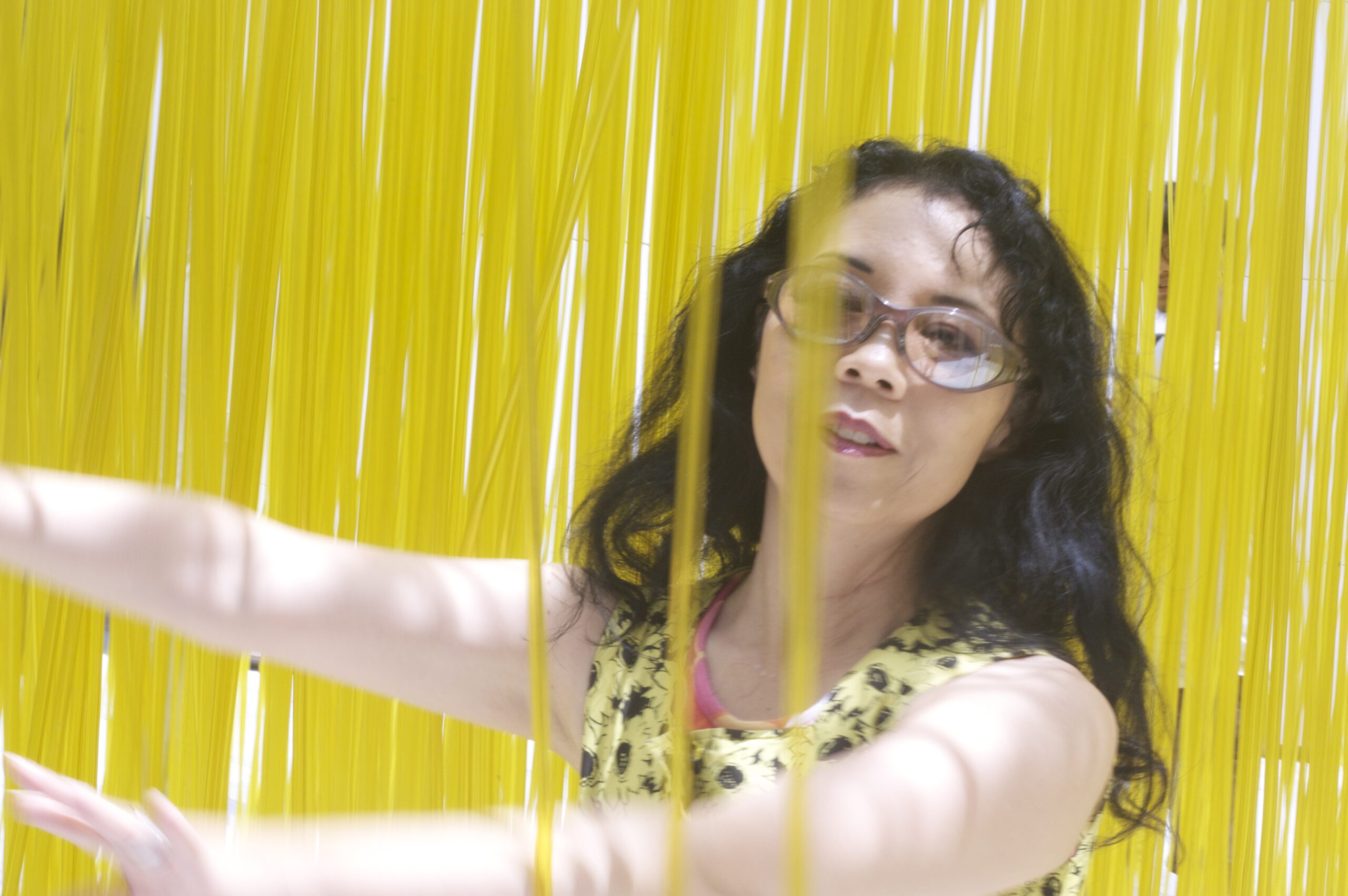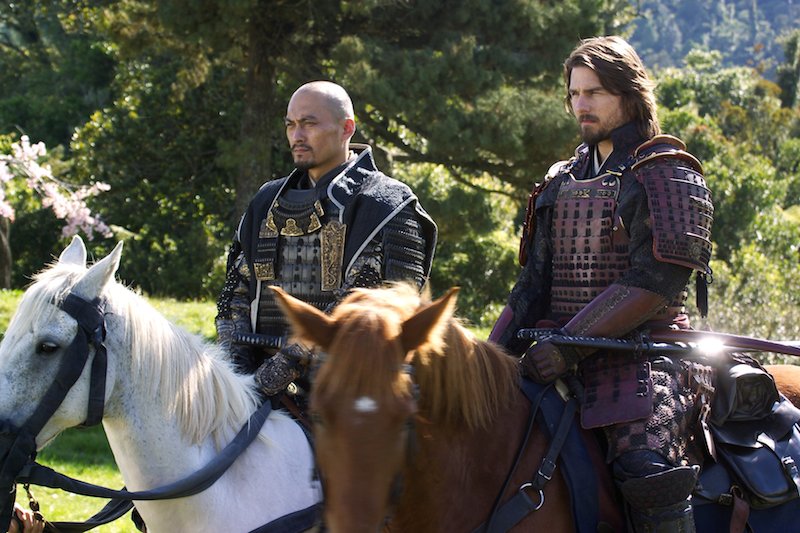This is part two of Jana Monji’s essay about the portrayal of Asian characters in cinema. Part one can be read by clicking here.
Someone once asked me: How has a book or movie like “Memoirs of a Geisha” hurt me? While I admit that some people embrace stereotypes and some women may enjoy being exotica, I do not. I suspect that when some people hire me, they assume I will fit inside a neat template, one that involves a demure, submissive woman once I find my inner geisha. That is likely what inspired a slightly inebriated Japanese American supervisor to throw a punch at my face at a company party. Soon after, the whole company was forced to take sensitivity training when my immediate supervisor admitted that one of his problems with me was that I didn’t talk like a girl should to a man.
Dating online, I found that identifying myself as being of Japanese ethnicity made me astoundingly popular, with Asian a distant second. In online forays, men—Asian, black and white, would then instruct me on how to be more Japanese. Black and white men could barely refrain from telling me how they were superior to Asian men, forgetting that my father and brother would be Asian. By putting Asian men down, they were casting derogatory remarks at my family. Moreover, polite rejections brought angry declarations that the men had fornicated with my mother for a couple of bucks overseas; why did I consider myself so precious?
The stereotype that Chris Rock used at the 2016 Oscars of precociously intelligent and geeky kids was one aspect of me when I was in grade school, but that stereotype hurts me because it assumes that my achievements are not made through individual determination and hard work. This stereotype also sets a resentful burden on ethnic Asians who wouldn’t qualify for Mensa. Then there are other assumptions linked to it: Asians and other “intelligent” minorities are work horses rather than racehorses and accountants aren’t sexy—they are almost asexual.
Culturally, the geisha was a relatively recent development in Japanese history and the percentage of women in the profession then and now is relatively low. There were and are male geisha. Sometimes, faux geisha have passed for the real thing for foreigners with fetishes and Oriental fantasies. Geisha is a female-dominant closed society. All of this doesn’t fit into the Western narrative of women as commodities. The samurai have a longer history in Japan than the geisha and yet only constituted a small part of the population, about 10%. Japan shouldn’t be simplistically defined by the samurai and the geisha.
Like other countries, Japan has had exceptional women. Why not focus on them instead of geisha? Japan had Murasaki Shikibu, the writer of the world’s first novel; Masako Hojo, the widow of Yoritomo Minamoto and a powerful political figure in her own right; Tomoe Gozen, a female warrior during the Genpei War, and during time of Queen Victoria’s reign, Takeko Nakano, who fought during the Boshin War. Why aren’t big budget American movies made about these women? And if they were, would an ethnic Asian be allowed to play the roles or would these roles be whitewashed like with “21” or “Ghost in the Shell”?
Roger learned about Japanese culture from Japanese movies, which can both instruct and mislead. Roger gave the 2003 Tom Cruise flick “The Last Samurai” three and a half stars. He wrote, “The battle scenes are stirring and elegantly mounted, but they are less about who wins than about what can be proven by dying. Beautifully designed, intelligently written, acted with conviction, it’s an uncommonly thoughtful epic.” The movie was well received in Japan, although the Mainichi Shimbun writer Tomomi Katsuta considered the portrayal of the noble samurai as a bit dated (the Oscar-nominated “The Twilight Samurai” came out in 2002). Katsuta told The New York Times, “Our image of samurai are that they were more corrupt.” Another ethnocentric and less than authentic touch in “The Last Samurai,” attributed all the contributions of other nations (such as France and Great Britain and Japan’s long-time partner the Netherlands) to the United States.
“Memoirs of a Geisha” was made for $85 million and grossed $158 million internationally. It had the second highest per-theater-average in 2005. That flies in the face of current claims regarding the casting of Scarlett Johansson for “Ghost in the Shell” that there are no ethnic Asian women who could open a major movie. Johanssson is 31. Zhang Ziyi is 37. Does that six years really make a difference? Or have things really changed in Hollywood between when “Memoirs of a Geisha” was made and now? Or is the casting of Scarlett Johansson just another example of Asian heroes being #WhitewashedOUT as in “21” and “The Last Airbender“?
Has the image of Asian women changed since Suzie Wong and Madame Butterfly? “Memoirs of a Geisha” garnered considerable negative attention amongst Asian American women nationwide just prior to its Hollywood premiere when a casting call went out for “beautiful Asian women” to dress up and “mingle in character” for the official premiere party. There were numerous complaints about the treatment of Asian women as being essentially the same, or a commodity no different from the ice sculpture or an inflatable palm tree. Some questioned why attractive Asian men were not needed to create “the ambience of ancient Japan, circa 1870s.” Did any American film send out casting calls for beautiful black women to dress up and mingle in character as maids for a 2011 premiere party for “The Help” or as Rayettes for a 2004 premiere party for “Ray“?
Wouldn’t most women of any color prefer to be a superhero, a warrior woman, than what Americans imagine a geisha is—prostitute? Interpreting the “Memoirs of a Geisha” geisha as representing both the true geisha and the essence of Japanese womanhood is like believing the science fiction of “The Stepford Wives.” Do other women have similar experiences now, a decade after I’ve stopped dating? I’d be intrigued to know if you’ve felt the need to tell men or women, “I’m #NotYourGeisha.”












